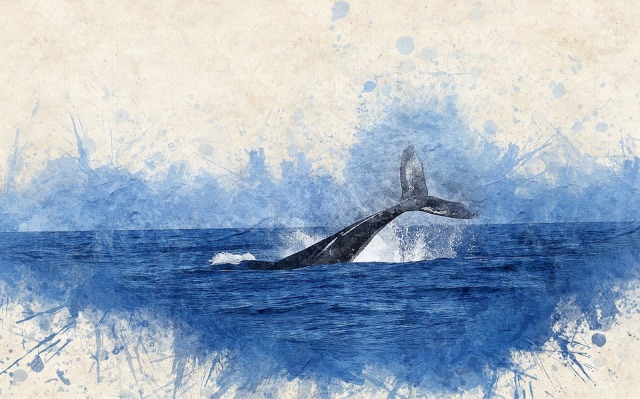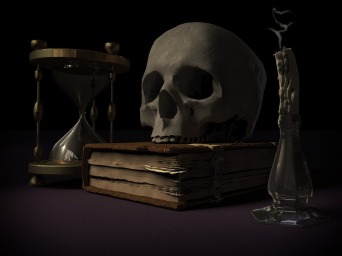
This book was not easy to read. Melville is certainly erudite and has a prodigious command of the English language; but the prose is not beautiful, nor is the structure of the novel commanding. The word count on Moby Dick is 209,000 – today a publishable novel is between 80,000 and 120,000 words and I cannot but imagine that a modern-day editor would have had Melville remove the tedious lists: types of whales, pictures and paintings of whales, annotated summary of a literature review regarding whales, and all the other digressions which rob the novel of its sense of purpose and drive. And perhaps the novel would have had more power had he done just that – but would it then have survived the test of time? Who knows…
Its almost as if Melville was not writing a novel at all but the precursors of our modern documentaries. The book itself can be broken down into sections (introduction, the search, the whale) or into types of writing (poetry, essays, monologues, the Bible) – and for analysis of this I recommend the review in Patrick T. Reardon’s blog.
Is the novel an allegory? Is it modern mythology; is it meant to be an epic like the Iliad and the Odyssey? Maybe neither, maybe all of the above. The thing that struck me, as a student of theology, was the intensely spiritual and religious nature of this novel. From the names – the protagonist was Ishmael (Abraham’s prodigal son) and the antagonist was Ahab (the wicked king of Israel famous as the husband of Jezebel). Elijah the prophet that stands on the quay warning Ishmael and his cannibal companion Queequeg to abandon Ahab and the Pequod and their diabolical mission – against the leviathan described by God in the book of Job, that most ancient of Biblical stories (which probably predated the flood).

Or maybe, just maybe, it is the first environmental novel. Perhaps it is a parable; Ahab representing the rapacious madness of human ambition and Moby Dick the viciousness of nature fighting back – to the destruction of all and sundry except for one because somebody must tell the story, “I only am escaped alone to tell thee” (from the Epilogue and taken, of course, from Job). There are some surprising hints at this possibility: one can be found in the description of the first sighting of the great white whale, “A gentle joyousness – a mighty mildness of repose in swiftness, invested the gliding whale. Not the white bull Jupiter swimming away with ravished Europa clinging to his graceful horns; his lovely, leering eyes sideways intent upon the maid; with smooth bewitching fleetness, rippling straight for the nuptial bower in Crete; not Jove, not that great majesty Supreme! did surpass the glorified White Whale as he so divinely swam.” And the second as Stubb, in the darkness of night, orders the preparation of a steak taken from a recently killed whale, “It is not, perhaps, entirely because the whale is so excessively unctuous that landsmen seem to regard the eating of him with abhorrence; that appears to result, in some way, from the consideration before mentioned: i.e. that a man should eat a newly murdered thing of the sea, and eat it too by its own light.” Its almost a lament for nature of a mariner knowing he was doing wrong.
What the novel does, for posterity and once and for all time, is enshrine a peculiar period in American history when we depended upon the great leviathans of the seas to light our homes. A ridiculous idea, absurd and wicked in its very essence. No wonder the whale killed everybody.
Now, just a little bit on art. I find extremely odd the ‘natural selection’ process by which history and posterity select works of literature that survive, while allowing others to fade away. Why history has picked “Moby Dick” and “East of Eden” to embed themselves into the fabric of America’s literary tradition while “Pacific Viking” (in every way just as grand), self-published (as Nietzsche and Thomas More also were), sells only a few dozen copies and will probably fade into oblivion.
Perhaps, as in all things, it is the presence or paucity of a champion. And I do regret that that my pen does not represent so great an advocate as to guarantee the survival of literature I find amazing. But alas, so goes it in the estates and affairs of men.


Very nice. I call your attention to AMERICAN RENAISSANCE by F. O. Matthieson with special attention to his near neighbor, Hawthorne, and their meetings and walks during the composition of Moby Dick. The book also examines why major 19th century American literature were published between 1850 and 1855.
I also direct your attention to my short essay on the book at: americandigest.org/wp/white-whale-americas-voyage/
LikeLike
Thanks, I’ll take a look at “American Renaissance” – also looking up your article now.
LikeLike